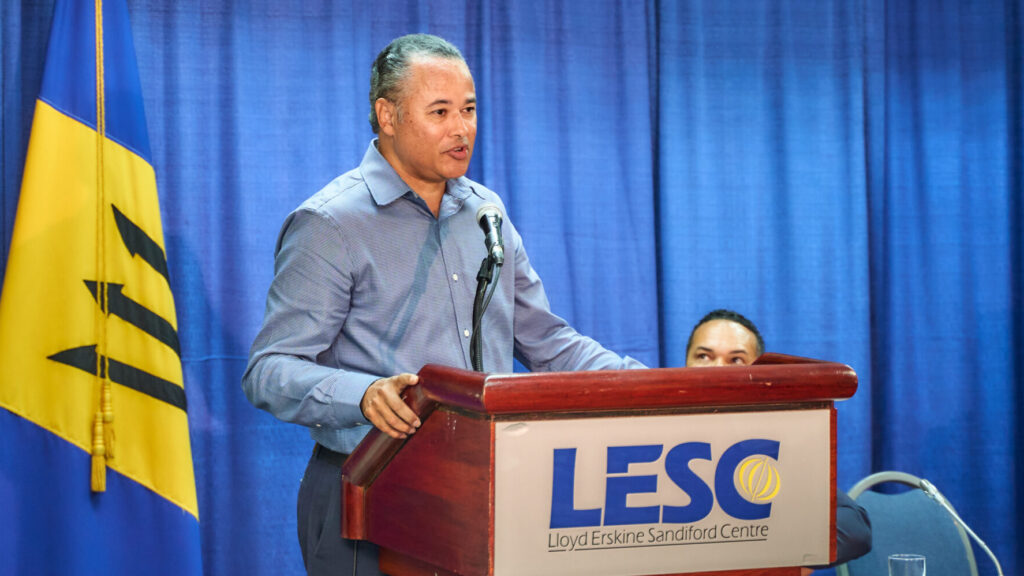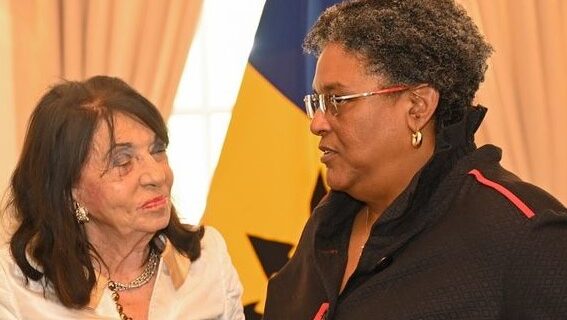During debate this week on the resolution to approve the National Policy for Improving the Lives of Persons with Disabilities, Minister of People Empowerment and Elder Affairs Kirk Humphrey highlighted the grace displayed by disabled Barbadians despite the level of discrimination they are forced to endure.
It was uncovered that as the advisory committee undertook its public outreach sessions to gather information directly from those impacted, the “horror stories” that came to light were heartbreaking.
On the other hand, those who live through experiences that impact their mental and physical well-being have remained remarkably calm in their long suffering. Even in their calmness and grace, our disabled community has remained resolute that the current state of affairs cannot continue.
The report from which the policy document was produced by the Ministry reflects a shameful state of affairs as it details how some citizens of this country are being treated like second-class citizens. Worse yet, the dehumanising practices are happening in plain sight as people choose to look the other way.
It is obvious from the evidence presented that the treatment meted out to disabled people is an awful indictment on a society that holds itself up as one that respects the rights of others and is punching above its weight.
The policy paper documents the denial of health care including dental treatment, extremely limited access to public transportation, and denial of entry to school.
We, therefore, are not surprised that Minister Humphrey felt compelled to offer what appeared to be a heartfelt apology to this community of persons.
“I apologise to the disabled community on behalf of every single government that has led this country because it would be fair to say that in a country that promises so much to ordinary people, members of the disabled community can legitimately say that they were denied the benefit from that promise. That kind of distorted development is not the kind of development that we wish for this country,” stated Humphrey, who demonstrates a deep commitment to a portfolio that many would deem unsexy and lacking in prestige when compared to that of Housing or Public Works, or even Tourism.
“The life that should have been afforded to many of them has been denied, not by virtue of a disability, but by virtue of an inability of the society to recognise that they have tremendous potential and that we should have tapped on that potential a long, long time ago. That is the work that is now before this Parliament,” he outlined.
There is no denying that the country’s disabled community deserves an apology. What they deserve even more is restitution.
It was, therefore, pleasing to hear from the minister that this was the course of action the administration would pursue as it prepares to bring legislation to Parliament before the end of the year to provide legal support for the policy posture.
The provision of a Special Needs Grant and non-contributory pension for guardians of children and adults with disabilities such as multiple sclerosis, down syndrome, cerebral palsy and autism – which applicants have recently started to receive – is a revolutionary initiative that will have a tangible positive impact in people’s lives.
The United Nations Educational, Scientific and Cultural Organisation (UNESCO) has underscored exactly how difficult life is in the Caribbean for people with physical and mental disabilities, noting the challenges are systemic. The UN agency explains that persons with disabilities have lower outcomes in education, employment and health compared to other population groups. Only 10 per cent of persons with disabilities in the Caribbean are employed and this inevitably leads to disabled persons being more likely to live in poverty and experience higher rates of violence.
A plan by the government to reinforce the right of disabled children to receive an education, that they should not be discriminated against when seeking healthcare or employment, or that a percentage of new housing should be set aside for the disabled are the kinds of changes to which this group of Barbadians should be entitled.
All this reflects an important and necessary shift, as well as a recognition that wrong things must be made right for these citizens.
The post Island must make wrong things right for the disabled appeared first on Barbados Today.


